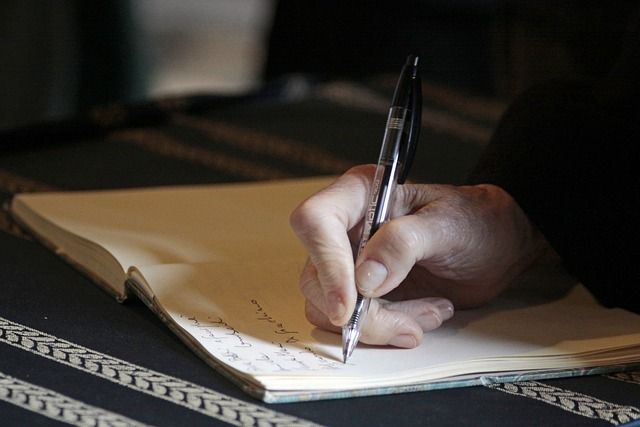When creating a will, you may consider using a trust to manage your assets after your death. Trusts can provide various benefits, such as protecting your assets, minimizing inheritance tax, and ensuring that your assets are distributed according to your wishes. In this article, we’ll delve into what trusts are, how they work, and the process of creating them in your will.
Please click here to find out more about our Wills and Lasting Power of Attorney Services.
Free Initial Telephone Discussion
For a free initial discussion on how we can help you deal with the legal implications of creating a Trust in a Will, get in touch with us today. We are also experienced in dealing with all aspects of Wills and Probate and we will review your situation and discuss the options open to you in a clear and approachable manner. Early expert legal assistance can help ensure you avoid the stress of dealing with these issues on your own. Simply call us on 0345 901 0445 or click here to make a free enquiry and a member of the team will get back to you.
What is a Trust?
A trust is a legal arrangement where one person (the settlor) transfers property to another person (the trustee) to hold and manage for the benefit of one or more beneficiaries. The trustee has a legal duty to act in the best interests of the beneficiaries.
Types of Trusts
There are several types of trusts that can be used in estate planning. Some of the most common include:
- Bare Trust: In a bare trust, the trustee has no discretion over how the trust property is used. The beneficiaries have a legal right to the property and can demand its transfer at any time.
- Discretionary Trust: In a discretionary trust, the trustee has the power to decide how and when to distribute the trust property to the beneficiaries. This gives the trustee flexibility to respond to changing circumstances.
- Accumulation and Maintenance Trust: This type of trust allows income to accumulate until the beneficiaries reach a certain age or meet specific conditions.
- Spendthrift Trust: A spendthrift trust is designed to protect the beneficiaries from their own financial mismanagement. It restricts the trustee’s ability to distribute the trust property to the beneficiaries directly.
Why Use a Trust in Your Will?
There are several reasons why you might consider using a trust in your will:
- Protecting assets: Trusts can help protect your assets from creditors, divorce proceedings, and potential claims from beneficiaries’ creditors.
- Minimizing inheritance tax: By using a trust, you may be able to reduce the amount of inheritance tax payable on your estate.
- Providing for vulnerable beneficiaries: Trusts can be used to provide for beneficiaries who may need special care or financial support.
- Ensuring your wishes are carried out: A trust can help ensure that your assets are distributed according to your wishes, even if your beneficiaries are minors or have special needs.
Creating a Trust in Your Will
To create a trust in your will, you should consult with a solicitor who specializes in estate planning. They can help you determine the most appropriate type of trust for your circumstances and ensure that the trust is properly drafted.
Key Steps in Creating a Trust
- Define Your Goals: Clearly outline your objectives for the trust. What do you want to achieve by setting up a trust?
- Choose Beneficiaries: Decide who will benefit from the trust. This could include your children, grandchildren, charities, or other individuals or organizations.
- Select Trustees: Appoint individuals or organizations to act as trustees. The trustees will be responsible for managing the trust’s assets.
- Determine Trust Property: Decide what assets you want to place in the trust. This could include cash, investments, real estate, or other property.
- Draft the Trust Document: The solicitor will draft a legal document outlining the terms of the trust. This will include details about the beneficiaries, trustees, trust property, and how the trust will be managed.
- Execute the Trust: Sign the trust document in the presence of witnesses.
Key Considerations When Creating a Trust
- Tax Implications: There may be tax implications associated with using a trust. Consult with a tax advisor to understand the potential tax consequences.
- Legal Requirements: Ensure that the trust complies with all relevant laws and regulations.
- Review and Update: Review and update the trust regularly to reflect any changes in your circumstances or legal requirements.
How we can help
We have a proven track-record of helping clients create Trusts. We are a multidisciplinary firm and have all the expertise inhouse to satisfy the most exacting requirements of our clients. We will guide you through all the necessary legal due diligence in a comprehensive and timely manner. We firmly believe that with the right solicitors by your side, the entire process will seem more manageable and far less daunting.
How to Contact Our Wills and Probate Solicitors
It is important for you to be well informed about the issues and possible implications of creating a Trust. However, expert legal support is crucial in terms of ensuring your wishes are met as you would want them to be.
To speak to our Wills and Probate solicitors today, simply call us on 0345 901 0445, or click here to make a free enquiry. We are well known across the country and can assist wherever you are based. We also have offices based in Cheshire and London.
Disclaimer: This article provides general information only and does not constitute legal advice on any individual circumstances.



